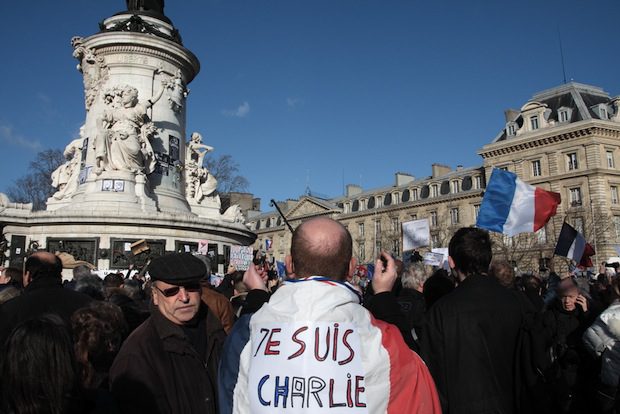France: Not Paradise, Hélas

Pamela Druckerman, an American Francophile, moved to Paris twelve years ago. She idealized France, as many of us do (c’est moi!). But now she’s sad, as she tells readers of her NYT column:
I see now that France was never paradise. “Your alter country is all that your first was not,” writes the English author Julian Barnes, “commitment to it involves idealism, love, sentimentality and a certain selective vision.”
But France has also gotten worse. What once seemed like adorable grouchiness or “bleak chic” has morphed into something darker: a willingness to believe that people are walking here from Aleppo for free root canals; a sense that — despite being the world’s sixth-largest economy — France is powerless to help more.
At this point, the French even seem unhappy about how negative they’ve become. A positive approach to refugees would probably energize them. As it stands, France can no longer claim to have a universal message. These days, it’s just a flawed, ordinary country that mostly thinks for itself.
If you read the whole column, you’ll see that what disillusioned her is the fact that France does not want to open its door to these refugees. Is it really the case that she cannot see why a French person would not want to throw the doors of their country open to Muslims from the Third World? Did Charlie Hebdo not happen?
A French friend listening to me go on about how much I loved Paris told me that I should not forget that having rented an apartment in the 5th Arrondissement (the Left Bank), I was living in the Disneyland version of Paris. There I was surrounded by the culture, the civility, and everything people like me think of when we indulge in our romance with France. Adam Gopnik has written:
We are happy, above all, when we are absorbed, and we are absorbed when we are serious, and the secret of Paris, in the end, is that the idea of happiness it presents is always mingled, I do not always know how, with a feeling of seriousness.
That sense of serious happiness, of pleasure allied to education … this tincture of seriousness infiltrates our happiness, giving it dignity. In Paris, Americans achieve absorption without obvious accomplishment, a lovely and un-American emotion.
This is true, and glorious. It’s what makes Paris Paris, and what makes France France, at least in the eyes of Americans like me. But we should keep in mind a couple of things. First, France is no more paradise than any other country is paradise. Second, all the things we love about France didn’t just happen, and they aren’t going to be there forever without care and stewardship. It may be the case that France ought to take more refugees in. But I don’t understand why so many left-wing intellectuals have this idea that the liberalism that means so much to them is strong enough to withstand the presence of an alien people whose religious and cultural convictions are strongly illiberal.
My sense is that people like Pamela Druckerman delight in the experience of the fruits of French civilization without having to dirty their hands with the unpleasant things one has to do to cultivate the conditions that make those fruits possible. She should move to the banlieues and see how that affects her opinion about the failures of the French to be universalist humanitarians.
Subscribe for as little as $5/mo to start commenting on Rod’s blog.